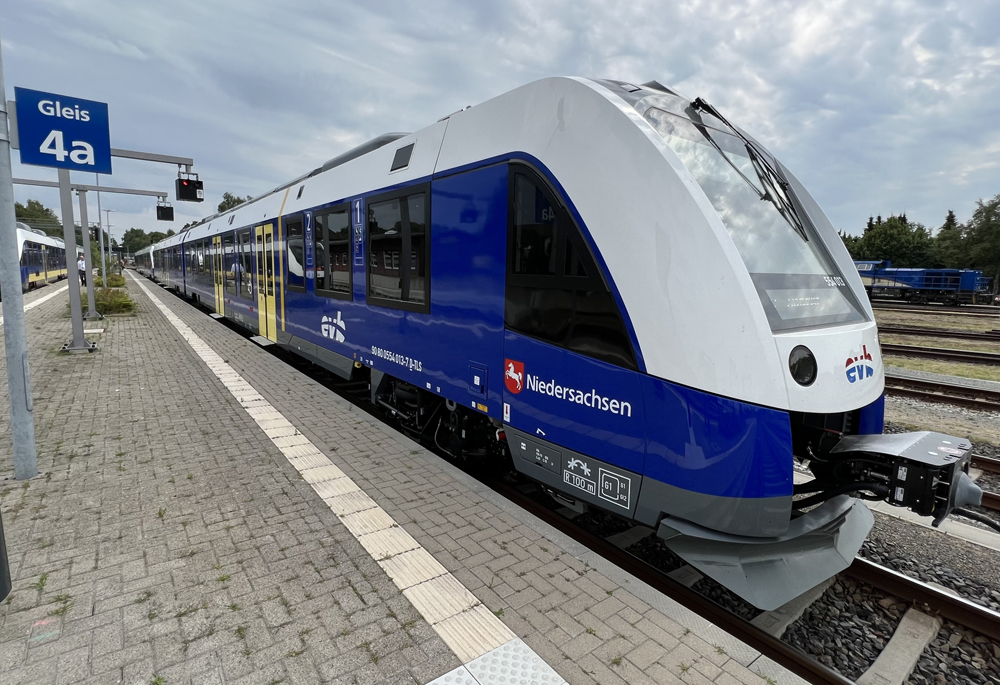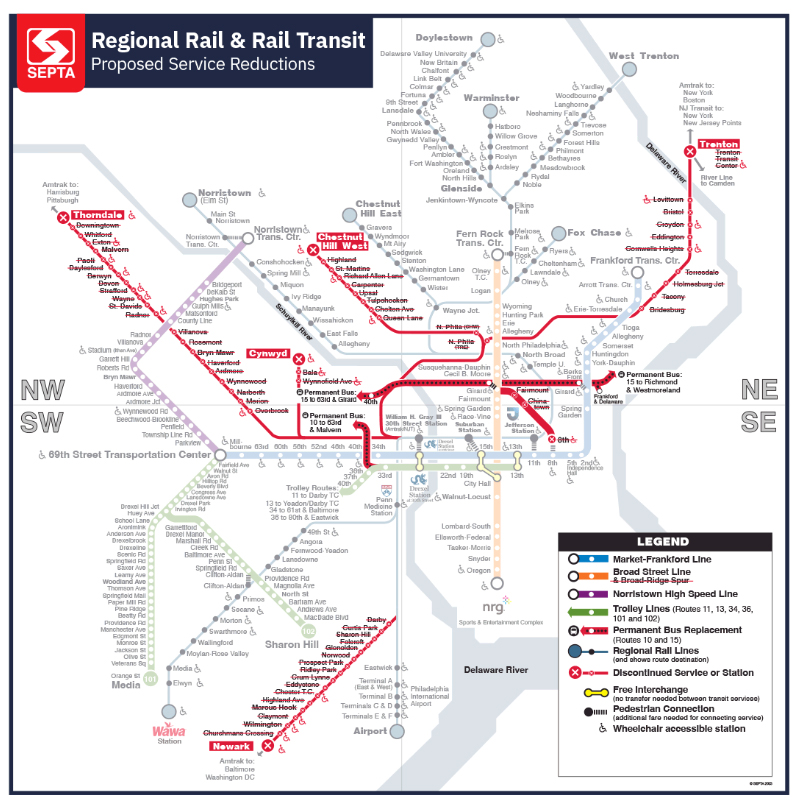
The first German transportation agency to use hydrogen fuel cell passenger trains is opting for battery-electric trainsets for further replacement of diesel equipment, citing cost considerations.
EVB (Eisenbahn und Verkehrsbetriebe Elbe-Weser) began operating 14 Alstom-built hydrogen fuel-cell trains last year between Cuxhaven and Buxtehude, Germany, on behalf of regional transportation authority LNVG [see “World’s first hydrogen trains enter regular passenger service,” Trains News Wire, July 26, 2022].
But LNVG has announced that in order to replace all its diesel equipment by 2029, it will acquire 102 new battery-electric trainsets, saying in a press release (translated from German via Google) that “trains with hydrogen drives and batteries were considered,” but the battery-electrics “are cheaper to run.” Another line will be electrified and equipped with 27 electric multiple-unit trainsets, the website Hydrogen Insight reports.
The development is no surprise. Cost factors have favored battery equipment over the hydrogen trainsets since the hydrogen technology was first introduced [see “Development of hydrogen-powered trains continues …,” News Wire, Dec. 14, 2020]. And a German study last year found the cost gap to be prohibitive.














An extremely smart and well-timed decision.
Dr. Güntürk Üstün